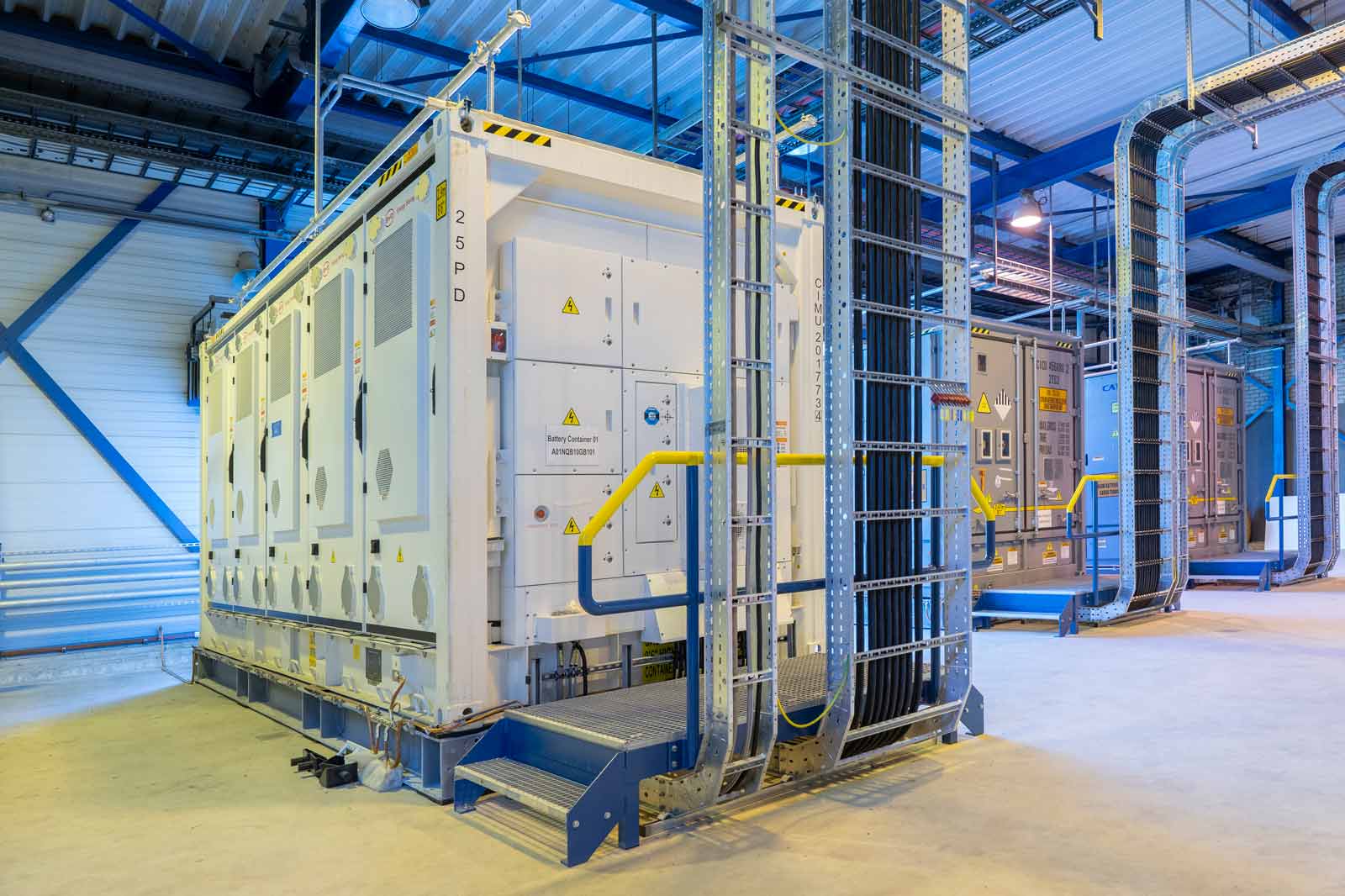RWE strengthens partnerships with ADNOC and Masdar to enhance energy security in Germany and Europe
06.02.2026

RWE’s first inertia-ready battery energy storage system (BESS) has started commercial operation on the site of the company’s power plant in Moerdijk, the Netherlands. It is the first of its kind in operation in the Central European grid.
The BESS has an installed capacity of 7.5-megawatts (MW) and a storage capacity of 11 megawatt hours (MWh). Highly responsive control technology and inverters with grid-forming functionality enable the system to supply or absorb power within milliseconds, helping to stabilise the power grid. This service is called inertia.
The more electricity comes from renewable, fluctuating energy sources, the more difficult it becomes to keep the power grid stable. Inertia plays a crucial role here as it is the fastest available balancing energy in the power grid. Until now, inertia has mainly been provided by the rotating masses of turbines, e.g. in coal-fired power plants.
Nikolaus Valerius, CEO RWE Generation SE, stated: “Our newest plant in Moerdijk shows that ultra-fast battery energy storage systems can deliver the grid-serving inertia once solely provided by conventional power plants. With the phase-out of fossil fuel-fired large power plants, more and more such systems are needed to stabilise the grid.”
The Moerdijk BESS was developed and constructed as part of OranjeWind, a joint offshore wind project off the Dutch coast being developed by RWE and its partner TotalEnergies. In using advanced lithium-iron phosphate (LFP) technology, combined with super-fast inverters, the plant is a blueprint for RWE’s plans to significantly expand its BESS capacities worldwide.
Parallel to commercial operation, the plant in Moerdijk is undergoing a two-year pilot phase with the aim of developing standards for future BESS capable of providing inertia. RWE will use the experience gained from this together with transmission system operator TenneT to develop the technical requirements and grid compliance procedures for the grid-forming properties of the plant.
As a driver of the energy transition, RWE develops, builds and operates battery storage systems in the US, Europe and Australia. The company currently operates battery storage systems with a total capacity of around 1,200 megawatts (MW).